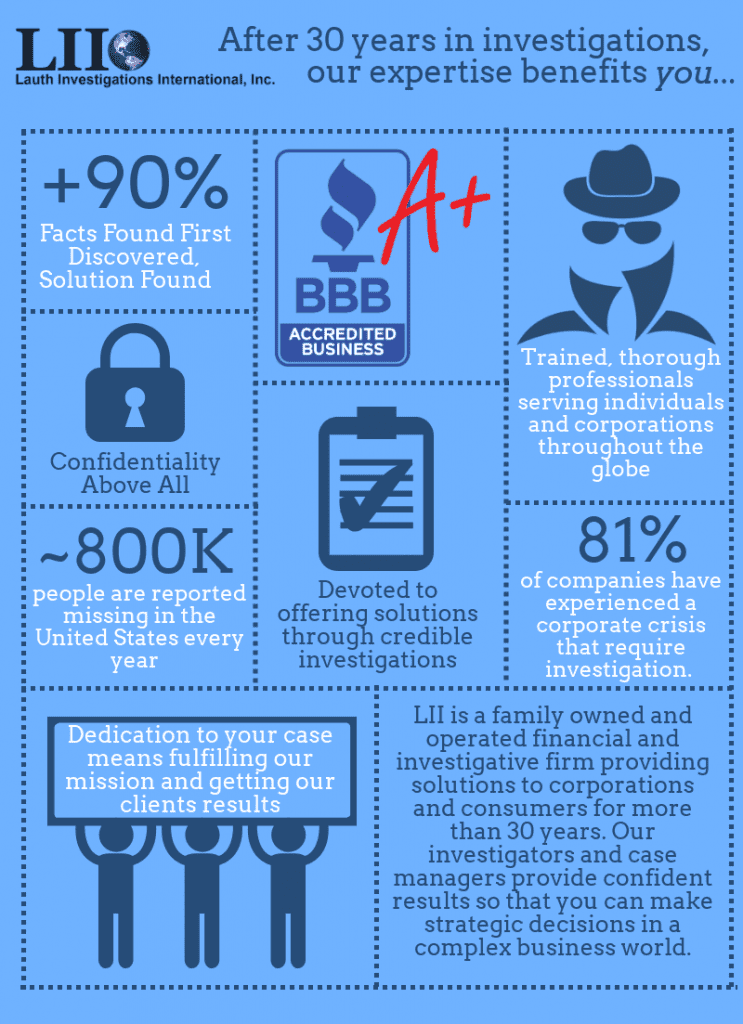7 Steps to a Successful Workplace Investigation
Despite your best efforts, complaints and internal issues will sometimes arise in the workplace. In these instances, a thorough investigation of the situation can vastly improve the chances of a favorable outcome for your company. For instance, the information you uncover can help build a case and/or protect your firm’s hard-earned reputation. If you’re dealing with a potential problem, such as employee theft, fraud or drug abuse, here are 7 steps to conducting a successful workplace investigation.
How a Private Investigator Can Help in a White Collar Criminal Case
White collar crime happens every day in the US, and it costs corporations billions of dollars annually. As with most things, preventing these crimes from occurring is always preferable, but given the number of cases making the news on a weekly basis, that’s obviously not always possible. For those situations in which you either suspect a crime is being committed in the workplace or you’re already in the throes of a legal battle, an experienced private investigator can significantly improve the chances of a more favorable outcome. Here’s how.
Tips for Resolving Commercial Disputes
No organization ever wants to have to deal with the messy details of commercial disputes, but despite our best efforts, these things happen. How you respond to such a situation can make a significant difference in the outcome. Should you find yourself dealing with a dispute, whether it’s over a simple misunderstanding or something more complicated, here are a few best practices for making the process go more smoothly.
7 Steps to Take When You’re Suspicious of Employee Drug Abuse
Employee drug abuse in the workplace can lead to a wide variety of problems, many of which can affect your company’s bottom line, regardless of whether the drug happens to be alcohol, prescription medication or illegal substances, or whether the use is occurring during working hours or on the employee’s personal time. Not only do these things affect the employee in question and the company as a whole, but they can also have a negative impact on other employees, leading to a host of other problems. To avoid this, management and those in HR must be proactive and vigilant so potential issues can be addressed swiftly and effectively. If you suspect that one or more of your employees may be abusing drugs, here are 7 steps to get the situation under control.
What’s Involved in a Copyright Infringement Investigation?

Copyright infringement can be one of the most detrimental infractions a business can fall victim to. Regardless of the size or industry of the organization, locating violators and holding them accountable is something that must be done to protect the integrity and hard work of the company. As experienced private investigators, we’ve assisted with countless copyright infringement investigations over the years. Here’s what the process typically involves.
7 Important Things to Know About Court Records
Seasoned private investigators know that when it comes to collecting and compiling pertinent information to help bolster a legal case, the records filed in court can mean the difference between a nail-biter and a slam-dunk case. That said, there are certain things one should understand about court records before proceeding, including how to leverage them to help bolster your investigation. Let’s take a look.
Corporate Investigations: How to Locate Former Employees
Locating a former employee can be challenging. These tips can provide some direction prior to hiring a private investigator for a formal corporate investigation.